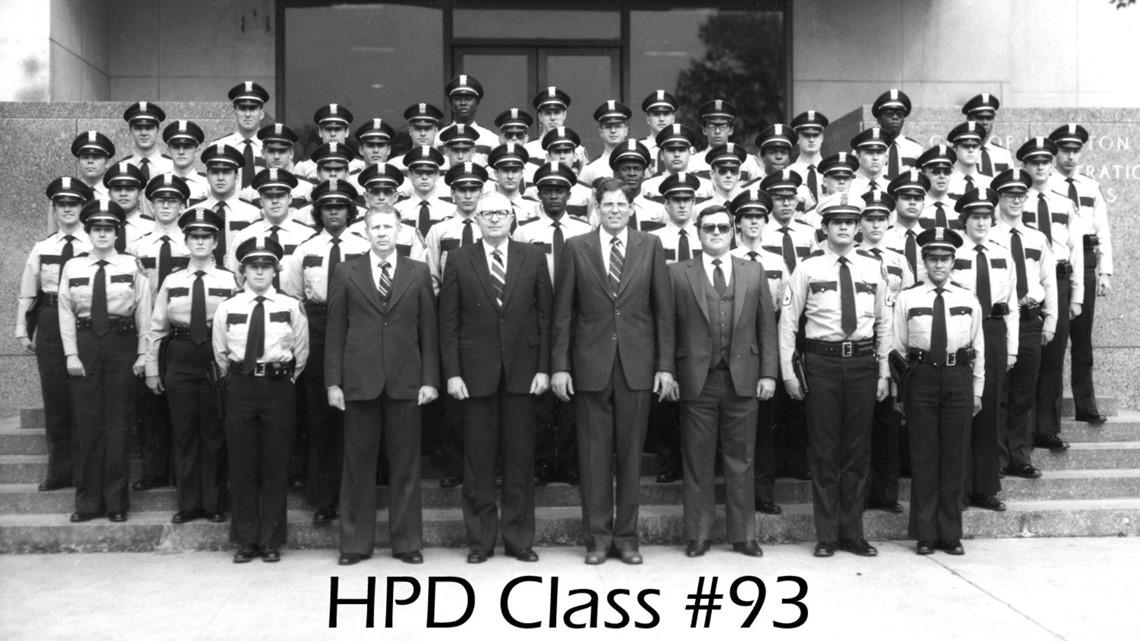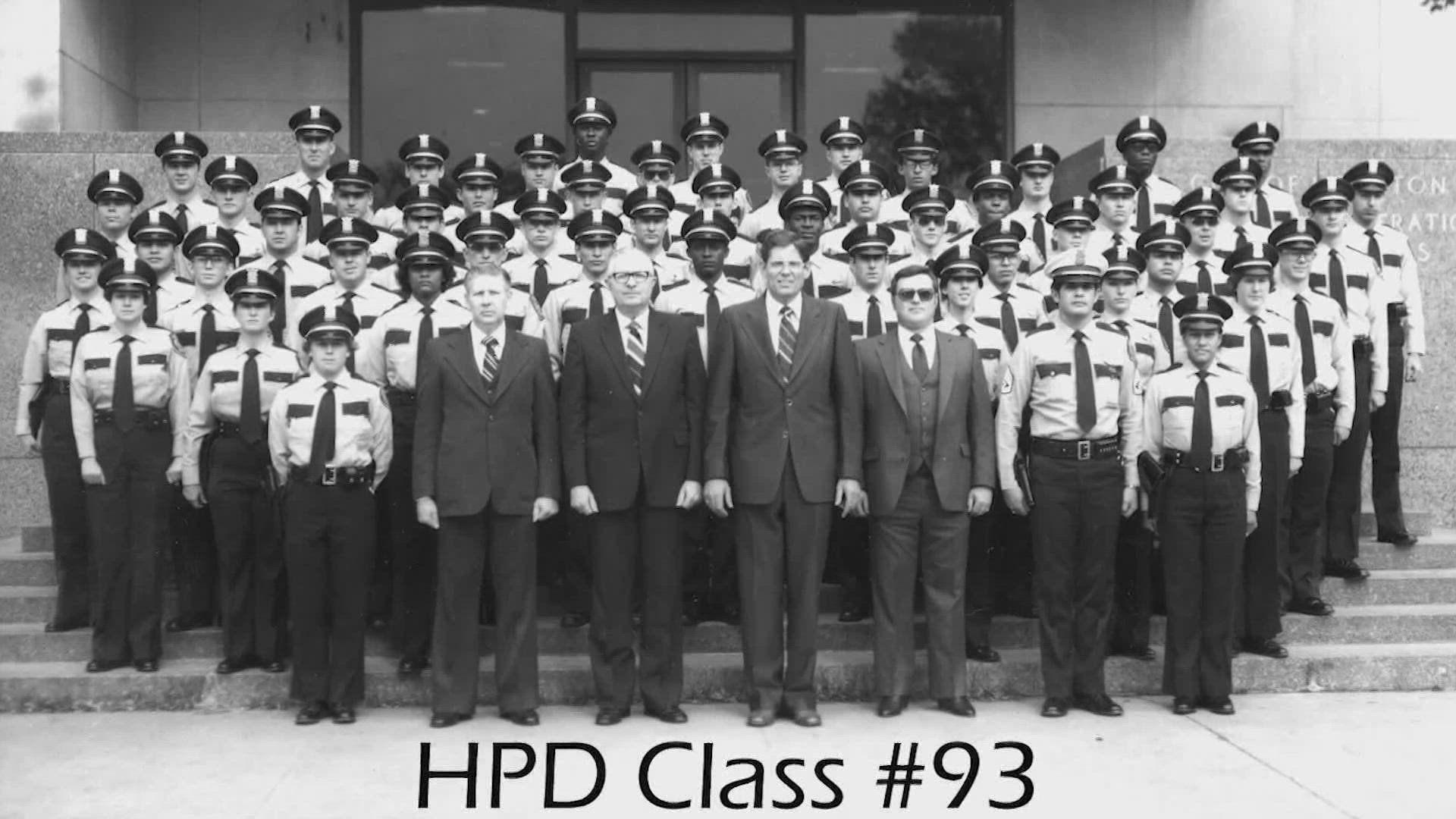HOUSTON — The City of Houston is working overtime to hire more police officers during this wave of violent crime.
Sixty-one were sworn in for duty Thursday and five more cadet classes will happen at the Houston Policy Academy this year. Mayor Sylvester Turner has proposed investing $125 million to boost police pay by 10.5% over the next three years.
The city is in an endless race to fill positions vacated by officers like Sergeant Robert Ruiz. The Houston native is retired Friday after 41 years of public service.
“They sometimes call me sergeant nit-picky,” said Ruiz as he boxed up decades of accolades and photos in his office at HPD’s East End Patrol Station.
“This is Miss Wanda at Toyota,” said Ruiz as he pointed to his computer screen.
The senior sergeant keeps an active social media presence full of photos and videos posted to his Twitter page: @SgtRRuiz1.
Social media preserves what memory just can’t. Four decades of public service to Houston that began in August 1980 when Ruiz became a member of cadet class 93. For context, the newest 61 Houston police officers were members of cadet class 252.
When Ruiz joined, he says he was part of the first HPD cadet classes that was filled by 50% minorities.
“I knew I could do a good job if given the opportunity and the chance,” he said of the difference he hoped to make in Houston when he became a police officer at just 20-years old.
“I couldn’t buy bullets. I couldn’t buy a gun. My mom had to buy my bullets for me,” he said.
Back then, you had to be at least 21 years old to buy ammunition.


1980 was a time when violent crime across Houston was high and technology did not exist. There were no computers in patrol units. DNA testing was not yet readily available to help investigators solve crimes. No cameras on car dashboards or body-worn cameras and there definitely was no surveillance video around to help catch crimes as the happened.
Ruiz also remembers police had no databases to track crime trends in real time.
“It’s not an easy job."
And it’s one that’s evolved over the decades.
The father of five children recalls a Houston police chief who, decades ago, made the decision to embrace community-based policing that included officers doing community service and hosting meet-and-greet events in neighborhoods.
“None of us, I know me, we didn’t think it would work. We called it 'no officers on patrol.'"
Over the years Ruiz has participated in food drives, coat collections and neighborhood watch parties, which he admits has led to a change of how Houston sees its police department.
“You’re not just a uniform. You’re a human being.”
Ruiz packed up his office at a time when violent crime is surging, again.
“You can fight crime. You just can’t fight father time.”
And in one last lesson to fellow officers who, he says, are dealing with low morale: "I think the perspective I have is, I’ve seen it before. And we’ve made it through, said Ruiz of lowering violent crime. “And it’s not like I’ve seen it once. I’ve seen it several times throughout my career that there are peaks and valleys.”
And there is another Robert Ruiz who is already carrying the torch. Ruiz’s eldest son has been a Houston police officer for about the last 10 years. He works out of the city’s downtown patrol station.
“My son’s a better man than me,” said Ruiz as he looked at a recent photo of father and son. “And I see that he has the same enthusiasm on wanting to make a difference that I did.”
Social media preserves the milestones made during a life of public service made possible through hard work and hope for the Houston he loves so much.

